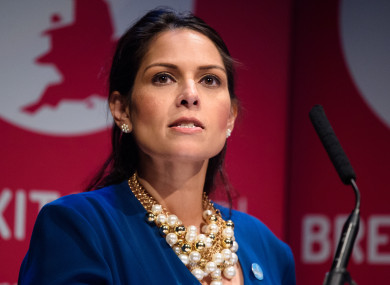Britain’s Home Secretary Priti Patel Paid £1k an Hour to Advise US Company Bidding for £6bn Defence Contract
Patel worked as a “strategic adviser” to Viasat from 1 May to 31 July, earning £5,000 a month for “an expected commitment” of about five hours a month.

Priti Patel was paid £1,000 an hour to advise a US company bidding on a lucrative £6 billion defence contract, The Guardian has revealed.
The Home Secretary has been urged to withdraw from cabinet discussions on the contract following the revelations.
Bidding to supply next-generation military satellite communication systems is expected to start next year, but Patel has been called out over a “conflict of interest”.
Christine Jardine, the Liberal Democrats’ home affairs spokesperson, pointed out that the now Home Secretary worked for Viasat in the period running up to her appointment.
She called on Patel to clarify whether she “has had any conversations about the [Ministry of Defence] contract with anyone there”.
Saying the government cabinet minister should “recuse herself from any cabinet or national security council discussions concerning the firm”.
Patel worked as a “strategic adviser” to Viasat from 1 May to 31 July, earning £5,000 a month for “an expected commitment” of about five hours a month.
The Californian company recently declared its interest in bidding for Skynet 6.
In a corporate blog the company executive said the UK has “an enormous opportunity” to deploy expertise from “private sector … providers, including Viasat”.
Jardine said:
“The British public cannot have confidence that this multibillion-pound defence contract will be decided in the national interest while one of the cabinet ministers in the discussions was until very recently a paid adviser to one of the companies bidding for it.”
Home Office sources said Patel had been “through a full process” of examination by the advisory committee on business appointments (Acoba), the body that monitors private sector employment by ministers and ex-ministers, and that “no issues were raised”.
*
Note to readers: please click the share buttons above or below. Forward this article to your email lists. Crosspost on your blog site, internet forums. etc.
Jack Peat is a business and economics journalist and the founder of The London Economic (TLE).He has contributed articles to The Sunday Telegraph, BBC News and writes for The Big Issue on a weekly basis. Jack read History at the University of Wales, Bangor and has a Masters in Journalism from the University of Newcastle-upon-Tyne.
Featured image is from Empics Entertainment

